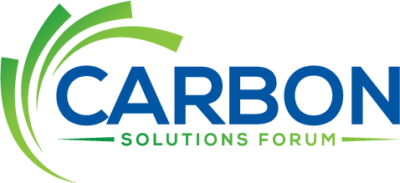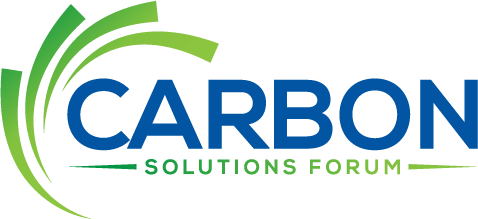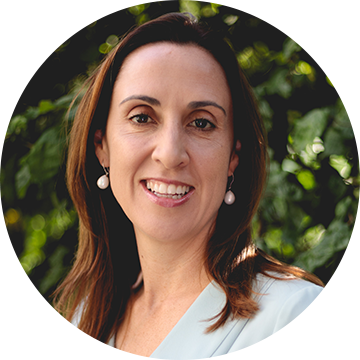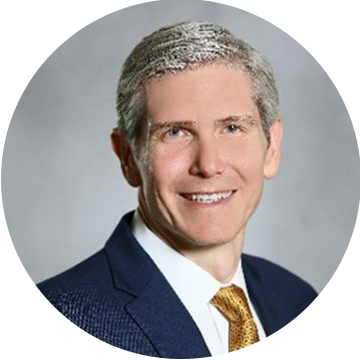Wednesday, February 19, 2025
Forum Day 1
8:30 am - 10:30 am
Networking activities
- Sip & Chip Hosted By:

- La Jolla Hike – Hosted By: Energy Dialogues
10:30 am - 11:30 am
Registration & Networking lunch
11:30 am - 11:45 am
Welcome remarks
11:45 am - 12:00 pm
Keynote presentation: US Federal policy update and post election scenario for decarbonization in the energy industry
Speaker
12:00 pm - 12:15 pm
Keynote presentation: California's approach to climate policy and carbon reduction — lessons learned and Implications for the energy sector
Speaker
12:15 pm - 1:05 pm
Panel discussion: Energy industry spotlight – Innovative opportunities and pathways to a low-carbon future
- How are energy leaders shaping their decarbonization roadmaps, prioritizing investments, and addressing operational challenges while balancing innovation, regulation and market competitiveness?
- What cutting-edge technologies are energy companies implementing to reduce their carbon footprint and how scalable are these innovations?
- How can energy companies develop new business models and revenue streams beyond government subsidies on their decarbonization journey?
- How are the new EPA rules for GHG emissions and other upcoming regulations impacting the sector?
- How are operators and shareholders balancing ambitious decarbonization goals vs financial targets and profitability?
- Exploring cross-industry collaboration and alliances: join ventures, public-private partnerships and other synergies
Moderator
Speakers
1:05 pm - 1:30 pm
Networking Coffee Break
1:30 pm - 2:20 pm
Interactive roundtables
- From farm to fuel: Advancing sustainability at the intersection of agriculture, energy production and carbon markets. Moderator: Chris Johnson, CEO, Agrellus
- Strategic investment in an uncertain regulatory landscape: Navigating risks and advancing new projects. Moderator: Katie Panczak, Vice President, Business Development, DT Midstream
- Powering data centers: Innovative partnerships and contractual structures for securing reliable low-carbon energy supply. Moderator: Jason Bennett, Department Chair – Global Projects, Partner, Baker Botts
- Nature-based solutions and carbon offsets quality: How energy leaders and investors can leverage these projects for decarbonization. Moderator: Jamie MacKinnon, SVP of Origination, Environmental Products, Anew
Moderators
2:25 pm - 2:45 pm
Keynote: Navigating the energy evolution: Strategy, politics and supply chain challenges in an era of instability
Speaker
2:45 pm - 3:05 pm
Industry polls
3:05 pm - 3:55 pm
Panel discussion: Overcoming barriers to success in CCS/CCUS project development
- How are current CCS/CCUS projects achieving financial viability and what are the key conditions needed to make more projects economically feasible?
- What revenue streams can developers explore to ensure long-term financeability?
- How to access early-stage capital for these projects and where is that investment coming from?
- What are the key strategies to manage operational cost effectively and enhance profitability?
- From capture to transportation and storage–main hurdles and necessary synergies across the carbon value chain
- What are the best strategies to navigate the evolving regulatory environment across different states and how can developers ensure compliance while accelerating project timelines?
Moderator
Speakers
3:55 pm - 4:25 pm
Networking coffee break
4:25 pm - 5:15 pm
Panel Discussion: Amplifying investment in decarbonization
- From an investor’s perspective, which decarbonization alternatives are seen as the most promising and why?
- What are the financial requirements at various stages of decarbonization projects?
- How can different investors bridge the financing gap between early-stage venture capital and later-stage infrastructure investments to implement and scale decarbonization technologies? What is the role of energy investors in this proccess?
- How can investors and energy companies collaborate to manage regulatory and technological uncertainties as well as other risks associated with carbon projects?
- How are new federal and international regulations influencing investor´s appetite for decarbonization?
- What is the role of carbon markets and tax credits in catalyzing new opportunities for decarbonization in the energy sector?
Moderator
Speakers
5:15 pm - 6:05 pm
Panel discussion: Building the future - Addressing infrastructure challenges and opportunities to meet rising demand for low-carbon energy
- Analyzing the complex permitting process for new decarbonization infrastructure: what are the main hurdles and best practices to streamline approval pathways
- What are the opportunities as well as the main technical and regulatory challenges in repurposing existing infrastructure, such as pipelines and storage facilities, for decarbonization projects?
- Meeting the energy needs of digital infrastructure: what investments and partnerships are and how can the energy industry collaborate with tech giants to address the upcoming power demand?
- What will be the role of midstream players and what partnerships can facilitate the integration of innovative technologies into existing infrastructure and new build-outs?
- Risk management, returns and scalability: how are investors approaching decarbonization infrastructure projects
- Driving stakeholder engagement: key strategies for building public support, addressing community concerns and ensuring transparency in infrastructure projects.
Moderator
Speakers
6:30 pm - 9:00 pm
Cocktail & CSF dinner reception
Dinner Hosted By:
8:30 am - 10:30 am
Networking activities
- Sip & Chip Hosted By:

- La Jolla Hike – Hosted By: Energy Dialogues
10:30 am - 11:30 am
Registration & Networking lunch
11:30 am - 11:45 am
Welcome remarks
11:45 am - 12:00 pm
Keynote presentation: US Federal policy update and post election scenario for decarbonization in the energy industry
Speaker
12:00 pm - 12:15 pm
Keynote presentation: California's approach to climate policy and carbon reduction — lessons learned and Implications for the energy sector
Speaker
12:15 pm - 1:05 pm
Panel discussion: Energy industry spotlight – Innovative opportunities and pathways to a low-carbon future
- How are energy leaders shaping their decarbonization roadmaps, prioritizing investments, and addressing operational challenges while balancing innovation, regulation and market competitiveness?
- What cutting-edge technologies are energy companies implementing to reduce their carbon footprint and how scalable are these innovations?
- How can energy companies develop new business models and revenue streams beyond government subsidies on their decarbonization journey?
- How are the new EPA rules for GHG emissions and other upcoming regulations impacting the sector?
- How are operators and shareholders balancing ambitious decarbonization goals vs financial targets and profitability?
- Exploring cross-industry collaboration and alliances: join ventures, public-private partnerships and other synergies
Moderator
Speakers
1:05 pm - 1:30 pm
Networking Coffee Break
1:30 pm - 2:20 pm
Interactive roundtables
- From farm to fuel: Advancing sustainability at the intersection of agriculture, energy production and carbon markets. Moderator: Chris Johnson, CEO, Agrellus
- Strategic investment in an uncertain regulatory landscape: Navigating risks and advancing new projects. Moderator: Katie Panczak, Vice President, Business Development, DT Midstream
- Powering data centers: Innovative partnerships and contractual structures for securing reliable low-carbon energy supply. Moderator: Jason Bennett, Department Chair – Global Projects, Partner, Baker Botts
- Nature-based solutions and carbon offsets quality: How energy leaders and investors can leverage these projects for decarbonization. Moderator: Jamie MacKinnon, SVP of Origination, Environmental Products, Anew
Moderators
2:25 pm - 2:45 pm
Keynote: Navigating the energy evolution: Strategy, politics and supply chain challenges in an era of instability
Speaker
2:45 pm - 3:05 pm
Industry polls
3:05 pm - 3:55 pm
Panel discussion: Overcoming barriers to success in CCS/CCUS project development
- How are current CCS/CCUS projects achieving financial viability and what are the key conditions needed to make more projects economically feasible?
- What revenue streams can developers explore to ensure long-term financeability?
- How to access early-stage capital for these projects and where is that investment coming from?
- What are the key strategies to manage operational cost effectively and enhance profitability?
- From capture to transportation and storage–main hurdles and necessary synergies across the carbon value chain
- What are the best strategies to navigate the evolving regulatory environment across different states and how can developers ensure compliance while accelerating project timelines?
Moderator
Speakers
3:55 pm - 4:25 pm
Networking coffee break
4:25 pm - 5:15 pm
Panel Discussion: Amplifying investment in decarbonization
- From an investor’s perspective, which decarbonization alternatives are seen as the most promising and why?
- What are the financial requirements at various stages of decarbonization projects?
- How can different investors bridge the financing gap between early-stage venture capital and later-stage infrastructure investments to implement and scale decarbonization technologies? What is the role of energy investors in this proccess?
- How can investors and energy companies collaborate to manage regulatory and technological uncertainties as well as other risks associated with carbon projects?
- How are new federal and international regulations influencing investor´s appetite for decarbonization?
- What is the role of carbon markets and tax credits in catalyzing new opportunities for decarbonization in the energy sector?
Moderator
Speakers
5:15 pm - 6:05 pm
Panel discussion: Building the future - Addressing infrastructure challenges and opportunities to meet rising demand for low-carbon energy
- Analyzing the complex permitting process for new decarbonization infrastructure: what are the main hurdles and best practices to streamline approval pathways
- What are the opportunities as well as the main technical and regulatory challenges in repurposing existing infrastructure, such as pipelines and storage facilities, for decarbonization projects?
- Meeting the energy needs of digital infrastructure: what investments and partnerships are and how can the energy industry collaborate with tech giants to address the upcoming power demand?
- What will be the role of midstream players and what partnerships can facilitate the integration of innovative technologies into existing infrastructure and new build-outs?
- Risk management, returns and scalability: how are investors approaching decarbonization infrastructure projects
- Driving stakeholder engagement: key strategies for building public support, addressing community concerns and ensuring transparency in infrastructure projects.
Moderator
Speakers
6:30 pm - 9:00 pm
Cocktail & CSF dinner reception
Dinner Hosted By:
Thursday, February 20, 2025
Forum Day 2
8:15 am - 9:00 am
Networking breakfast
9:00 am - 9:05 am
Welcome remarks
9:05 am - 9:55 am
Panel discussion: Reviewing latest developments and the role of Voluntary Carbon Markets in the energy transition
- How can energy companies craft effective carbon offset strategies and integrate voluntary carbon markets as part of their broader energy transition strategies?
- What are the latest and most relevant standardization initiatives and what is their potential to streamline carbon offset strategies for energy companies?
- Exploring the intersection of carbon credits and CCS/CCUS projects: what role do carbon credits play in enhancing CCUS project financeability?
- What are the best strategies to mitigate the financial risks associated with price volatility?
- Enhancing verification, monitoring, and reporting: innovative technologies and approaches to improve the transparency and credibility of carbon offsets
Moderator
Speakers
9:55 am - 10:10 am
Industry polls
10:10 am - 11:00 am
Interactive roundtables
- Unlocking energy projects under the new administration: Streamlining approvals and enhancing carbon management. Moderator: Savita Bowman, Senior Program Manager, Carbon Management, ClearPath
- Innovative approaches to scaling carbon sequestration and leveraging captured CO₂ for new revenue streams and cost offsets. Moderator: Breck Bash, Chief Commercial Officer, CapturePoint
- Ensuring accurate monitoring and transparency across the energy value chain, Moderator: Ben Webster, Director of Policy, MiQ
Moderators
11:00 am - 11:20 am
Networking coffee break
Speakers
Moderator
11:20 am - 11:35 am
Keynote presentation: Understanding the fundamentals of compliance carbon markets and their impact on energy companies
Speaker
11:35 am - 11:55 am
Fireside chat: Navigating regulatory mandates and leveraging compliance
- What are the latest mandates and compliance regulations for carbon reduction in the U.S. and globally, and how are they impacting energy companies?
- How are carbon taxes and cap-and-trade systems functioning and how effective have these policies been in driving emissions reductions in the energy space?
- How is the EU Carbon Border Adjustment Mechanism affecting energy production and what are its implications for global trade and competitiveness for US natural gas?
- What lessons can be learned from regulated markets in California, New York and other U.S. states and how can energy companies navigate overlapping state, national, and global regulatory frameworks?
- What emerging regulatory mandates should energy companies be prepared for, and how can they proactively position themselves for long-term compliance and success?
Moderator
Speaker
11:55 am - 12:05 pm
Student Takeaways
Sponsored By:

12:05 pm - 12:55pm
Networking lunch
1:00 pm - 1:50 pm
Panel discussion: The role of new technologies to reduce emission in energy and beyond
- What are the key technologies driving efficient emissions management across gas and power facilities? How are they being integrated into operations and improving performance?
- How are advancements in data collection and monitoring improving transparency and helping energy companies in meeting sustainability goals and regulatory standards?
- What are the most effective low-carbon alternatives for decarbonizing gas generation and powering energy-intensive sectors like data centers? How can these solutions be scaled effectively?
- How can the “utilization” aspect of CCUS be maximized and what are the most promising ways energy companies can use captured carbon to create value?
- Direct Air Capture (DAC): latest development, key technical and financial barriers and opportunities for its widespread adoption in the energy sector
- What role do green hydrogen, renewable natural gas (RNG), and other low-carbon alternatives play in industrial decarbonization? Where are the biggest market opportunities for these?
Moderator
Speaker
1:50 pm -2:40 pm
Panel discussion: Sustainable transportation fuels and other low carbon alternatives: Production challenges, scalability and demand outlook
- What factors are driving demand for low-carbon transportation fuels in aviation, shipping, and road transport and what this means for energy producers looking to tap into these markets?
- Examine the current landscape of sustainable fuel producers and the role energy companies can play in ramping up production and distribution.
- What are the primary production and adoption challenges for sustainable aviation fuels (SAF)?
- How is the marine sector addressing its decarbonization needs, and what is the outlook for sustainable marine fuels?
- What is the role of electric vehicles in the broader low-carbon transportation conversation, and how do they intersect with other sustainable fuel technologies?
Moderator
Speakers
2:40 pm
Conclusions and end of Carbon Solutions Forum
8:15 am - 9:00 am
Networking breakfast
9:00 am - 9:05 am
Welcome remarks
9:05 am - 9:55 am
Panel discussion: Reviewing latest developments and the role of Voluntary Carbon Markets in the energy transition
- How can energy companies craft effective carbon offset strategies and integrate voluntary carbon markets as part of their broader energy transition strategies?
- What are the latest and most relevant standardization initiatives and what is their potential to streamline carbon offset strategies for energy companies?
- Exploring the intersection of carbon credits and CCS/CCUS projects: what role do carbon credits play in enhancing CCUS project financeability?
- What are the best strategies to mitigate the financial risks associated with price volatility?
- Enhancing verification, monitoring, and reporting: innovative technologies and approaches to improve the transparency and credibility of carbon offsets
Moderator
Speakers
9:55 am - 10:10 am
Industry polls
10:10 am - 11:00 am
Interactive roundtables
- Unlocking energy projects under the new administration: Streamlining approvals and enhancing carbon management. Moderator: Savita Bowman, Senior Program Manager, Carbon Management, ClearPath
- Innovative approaches to scaling carbon sequestration and leveraging captured CO₂ for new revenue streams and cost offsets. Moderator: Breck Bash, Chief Commercial Officer, CapturePoint
- Ensuring accurate monitoring and transparency across the energy value chain, Moderator: Ben Webster, Director of Policy, MiQ
Moderators
11:00 am - 11:20 am
Networking coffee break
Speakers
Moderator
11:20 am - 11:35 am
Keynote presentation: Understanding the fundamentals of compliance carbon markets and their impact on energy companies
Speaker
11:35 am - 11:55 am
Fireside chat: Navigating regulatory mandates and leveraging compliance
- What are the latest mandates and compliance regulations for carbon reduction in the U.S. and globally, and how are they impacting energy companies?
- How are carbon taxes and cap-and-trade systems functioning and how effective have these policies been in driving emissions reductions in the energy space?
- How is the EU Carbon Border Adjustment Mechanism affecting energy production and what are its implications for global trade and competitiveness for US natural gas?
- What lessons can be learned from regulated markets in California, New York and other U.S. states and how can energy companies navigate overlapping state, national, and global regulatory frameworks?
- What emerging regulatory mandates should energy companies be prepared for, and how can they proactively position themselves for long-term compliance and success?
Moderator
Speaker
11:55 am - 12:05 pm
Student Takeaways
Sponsored By:

12:05 pm - 12:55pm
Networking lunch
1:00 pm - 1:50 pm
Panel discussion: The role of new technologies to reduce emission in energy and beyond
- What are the key technologies driving efficient emissions management across gas and power facilities? How are they being integrated into operations and improving performance?
- How are advancements in data collection and monitoring improving transparency and helping energy companies in meeting sustainability goals and regulatory standards?
- What are the most effective low-carbon alternatives for decarbonizing gas generation and powering energy-intensive sectors like data centers? How can these solutions be scaled effectively?
- How can the “utilization” aspect of CCUS be maximized and what are the most promising ways energy companies can use captured carbon to create value?
- Direct Air Capture (DAC): latest development, key technical and financial barriers and opportunities for its widespread adoption in the energy sector
- What role do green hydrogen, renewable natural gas (RNG), and other low-carbon alternatives play in industrial decarbonization? Where are the biggest market opportunities for these?
Moderator
Speaker
1:50 pm -2:40 pm
Panel discussion: Sustainable transportation fuels and other low carbon alternatives: Production challenges, scalability and demand outlook
- What factors are driving demand for low-carbon transportation fuels in aviation, shipping, and road transport and what this means for energy producers looking to tap into these markets?
- Examine the current landscape of sustainable fuel producers and the role energy companies can play in ramping up production and distribution.
- What are the primary production and adoption challenges for sustainable aviation fuels (SAF)?
- How is the marine sector addressing its decarbonization needs, and what is the outlook for sustainable marine fuels?
- What is the role of electric vehicles in the broader low-carbon transportation conversation, and how do they intersect with other sustainable fuel technologies?



























































